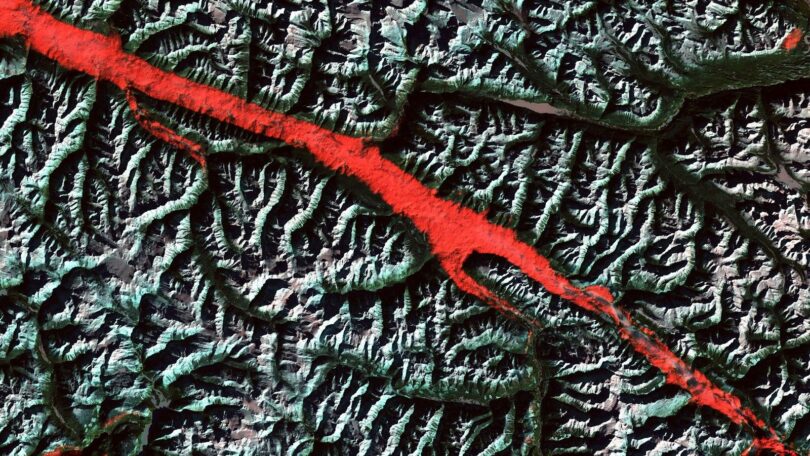Sipping delicately from the chalice of temptation, humanity has long been enticed by the intoxicating elixir that is alcohol. A bewitching potion that weaves its charm through the ages, amplifying both joy and sorrow, it holds an undeniable allure. Yet, behind the veil of libation and revelry hides a treacherous path paved with perils and misfortunes. For nestled within the folds of this seemingly innocent indulgence lies an abyss of alcohol overload, a realm where the boundary separating mirth from madness evaporates into thin air. In this article, we embark on a journey through the shadows, diving headfirst into the swirling whirlpool of excessive alcohol consumption, unearthing the dangers that lurk beneath the frothy surface. Brace yourself, dear reader, as we navigate the tempestuous waters that challenge perception, blur judgment, and shatter lives, shedding light on the unforgiving landscapes of .
Are you ready to discover the harrowing dangers that lie behind the curtains of excessive alcohol consumption? Brace yourself for an eye-opening journey into the perils of alcohol overload. In this dark and ruthless underworld that dwells within every intoxicating beverage, unsuspecting individuals often find themselves ensnared in a web of debilitating consequences.
As the sun sets and the moon rises, a seemingly innocent night out with friends can quickly transform into a treacherous expedition. Enter the euphoria that alcohol promises—a temporary escape from reality, a momentary release from inhibitions. But little do we know that behind the veil of momentary bliss, lies a lurking beast eager to prey on unsuspecting victims.
From the moment the first sip graces the lips, an insidious transformation begins. The elixir of inhibition erodes the boundaries of reason, distorting perception and unleashing impulsive behavior. Like a sinister conductor commanding each subsequent drink, alcohol hijacks one’s decision-making ability, reducing them to a mere puppet under its influence.
The consequences of alcohol overload extend far beyond a foggy morning and pounding headache. Behind closed doors, relationships crumble, friendships falter, and families fracture. Veins once coursing with love and trust are poisoned with betrayal and resentment. Alcohol’s toxic blend dissolves bonds, leaving a trail of shattered hearts and fractured souls.
Alas, the damage inflicted by excessive consumption stretches beyond the emotional realm. In its wake, physical health bears the brunt of the assault. The liver, a resilient soldier against toxins, can only battle for so long before succumbing to the relentless siege. Cirrhosis, fatty liver disease, and even liver failure loom ominously on the horizon, beckoning those who dare to push their limits.
But that’s not all—our nervous system, too, falls victim to the venomous grip of alcohol. As it invades our body, it strips away the protective layers safeguarding our cognitive faculties. Memory loss, impaired judgment, and even blackouts become companions on this treacherous path. In the pursuit of euphoria, we unknowingly sacrifice our very essence, all while the alcohol-fueled haze engulfs our minds.
Let us not forget the collateral damage inflicted on our society as we traverse this intoxicated labyrinth. From the enraged screams on a darkened street corner to the twisted wreckage left behind by a drunk driver’s recklessness, the consequences ripple through every corner of our communities. Lives are shattered, dreams are dashed, and a pebble thrown into the vast ocean of alcohol overload creates an eternal ripple effect.
As these words weave a tapestry of caution, a call to mindfulness emerges. We must confront the darkness within the realm of alcohol, lest it consumes us whole. Awareness of our limits and an appreciation for the fragility of life become beacons of hope amidst the chaos. So, tread cautiously, my friend, for the trials and tribulations of alcohol overload may be closer than you think.
Understanding the Effects of Excessive Alcohol Consumption on Physical Health
Embarking on a journey through the depths of excessive alcohol consumption, we find ourselves faced with a myriad of perplexities and burstiness. Beyond the foggy nights and blurred memories lies a harsh reality that often goes understated: the significant impact on physical health. Let us delve into the intricate web of effects that this destructive habit can have on our bodies, a dark side often overshadowed by the allure of the bottle.
The initial signs of excessive alcohol consumption are often manifested in the fluctuation of an individual’s weight. While some may experience sudden weight gain due to the high caloric content in alcoholic beverages, others may face the opposite effect – a steady decline in weight. These weight fluctuations can lead to severe imbalances in the body’s metabolism, wreaking havoc on multiple bodily systems.
Beyond the superficial changes in weight, the cardiovascular system bears the brunt of excessive alcohol consumption. Alcohol acts as a double-edged sword, initially causing vasodilation that may temporarily elevate mood and excitement. However, continued excessive drinking takes a toll on the heart, leading to increased blood pressure, irregular heartbeats, and even the possibility of cardiomyopathy – a disease that weakens and enlarges the heart muscle.
As excessive alcohol consumption progresses, the toll on the liver becomes apparent. The liver, our body’s detoxification powerhouse, struggles to keep up with the processing of alcohol, leading to inflammation and ultimately, the development of alcoholic hepatitis. Left unchecked, this condition can progress to more severe forms, such as cirrhosis, causing irreversible damage to the liver and impeding its vital functions.
While the physical effects of excessive alcohol consumption are evident on the surface, it is crucial to recognize the underlying impact on the body’s immune system. Prolonged heavy drinking significantly weakens the immune system, making the body more susceptible to a range of infections and diseases. From respiratory infections such as pneumonia to increased vulnerability to cancer, the consequences of alcohol overload extend far beyond the immediate grasp of its influence.
In addition to the direct effects on physical health, excessive alcohol consumption also takes a severe toll on mental well-being. The temporary euphoria experienced when under the influence of alcohol is often replaced by periods of anxiety and depression. These mood swings, coupled with the potential exacerbation of pre-existing mental health conditions, create a calamitous cycle that can swiftly spiral out of control.
Boldly confronting the perils of excessive alcohol consumption unveils a harsh reality that demands attention. The physical effects extend far beyond a mere hangover – they permeate and afflict the entire body, from the cardiovascular system to the liver, immune system, and mental well-being. To mend the broken pieces of health, a critical understanding of these effects is the first step towards breaking free from the clutches of alcohol overload.
Unveiling the Mental Health Implications of Alcohol Abuse
, a topic that delves into the intricate web of mental health consequences resulting from the misuse of alcohol, shines a spotlight on one of society’s most pervasive issues. As the throbbing heart of a vibrant social culture, alcohol bewitchingly permeates our lives with its alluring promise of relaxation, camaraderie, and escape. Yet, beneath the seemingly harmless surface lies a tumultuous torrent that unravels the very fabric of our mental well-being.
Within the realms of alcohol abuse, a complex string of interconnected mental health implications unfurls, wreaking havoc on the psyche of those caught in its clutches. The fumes of alcohol’s overindulgence tend to ignite a blaze within the mind, forever altering the delicate balance of emotions, cognition, and perception. From the depths of depressive episodes to the pinnacle of manic highs, alcohol’s intoxicating sway seeps into the recesses of the mind, casting dark shadows that are not easily dispelled.
Unveiling the true impact of alcohol abuse on mental health necessitates a nuanced exploration, encompassing the kaleidoscope of disorders and their interplay with alcohol’s venomous embrace. One such malady lingering in the shadows is depression. Like a tempestuous cloud, depression descends upon the soul, exacerbating the despair alcohol abuse often brings. The concoction of alcohol’s depressive qualitiees, along with its ability to hinder the effectiveness of prescribed antidepressants, amasses into a potent force that amplifies the anguish experienced by those already struggling with depression. A vicious cycle begins, where alcohol becomes both a crutch and catalyst for darker thoughts.
In tandem with the insidious grip of depression, anxiety emerges as an unwelcome companion to the tumultuous journey of alcohol abuse. Like a relentless whisper, anxiety feeds off every ounce of alcohol coursing through the veins, leaving individuals consumed by a ceaseless sense of unease. Social interactions become battlegrounds, teeming with trembling hands, pounding hearts, and an unrelenting self-consciousness. Instead of fostering connections, alcohol exacerbates a cycle of isolation, as the temporary relief it provides quickly morphs into heightened anxiety festering beneath a fragile façade.
Within these murky depths, the monstrous specter of addiction rears its ugly head. As alcohol abuse entwines itself ever tighter around the psyche, the allure of escape intensifies, flickering like a lighthouse guiding lost souls to perdition. The intoxicating embrace grows stronger, luring individuals deeper into dependency. The mind becomes a battleground, torn between the desire to break free from the shackles of addiction and the comforting familiarity of relying on alcohol as a coping mechanism. The relentless pursuit of that elusive high fuels a destructive cycle, consuming reasoning, relationships, and hope.
To navigate this labyrinthine realm of mental health implications spurred by alcohol abuse, awareness becomes the guiding light leading to prevention, intervention, and healing. Recognizing the vital role of support systems, both personal and professional, can be a lifeline for those embroiled in the chaotic dance between alcohol and mental well-being. Equipping individuals with coping mechanisms and fostering an environment of empathy and understanding can pave the way for recovery. Behind the veil of alcohol’s allure lies a world desperate for understanding, where the specter of mental health consequences can find solace in the embrace of knowledge, compassion, and resilience.
Exploring the Social Consequences of Excessive Drinking
Excessive drinking is a societal phenomenon that has gained prominence in recent times, raising serious concerns about its social consequences. The perils of alcohol overload are multifaceted, impacting individuals, relationships, and society as a whole. As the nights grow darker and inhibitions fade, a disheartening web of perplexity starts to intertwine, leaving a trail of broken dreams, shattered futures, and irreversible damage.
At an individual level, the ramifications of excessive alcohol consumption can be devastating. Physical and mental health often bear the brunt of this self-inflicted onslaught. The burstiness of alcohol-induced euphoria can lure one into a deceptive spiral of addiction, robbing them of their autonomy and sense of self. With every sip taken, the drinker dances on the fine line between blissful oblivion and a descent into the depths of despair.
Relationships, both romantic and platonic, are not spared from the consequences of alcohol overload. The perplexity of excessive drinking can turn the brightest of connections into a murky fog of misunderstandings, confrontations, and shattered trust. Alcohol has a knack for amplifying latent emotions, making it a potent catalyst for arguments, infidelity, and even violence. The burstiness of temporary courage often masks long-lasting scars, leaving a trail of broken hearts and fractured bonds.
On a larger scale, the social fabric bears witness to the consequences of alcohol overload. Communities become plagued by the burstiness of disorderly conduct, as public spaces transform into breeding grounds for violence, vandalism, and chaos. The perplexity of alcohol-fueled aggression alters the very essence of neighborhoods, turning them into cautionary tales instead of safe havens. The consequences of excessive drinking reverberate beyond personal spheres, eroding the collective well-being of society as a whole.
It is crucial to address the social consequences of excessive drinking, for only by doing so can we build a society that thrives on healthier choices and strengthened bonds. Education campaigns, emphasizing the dangers and potential harm caused by alcohol overload, can help dispel the perplexity surrounding this issue. By empowering individuals with knowledge, we can encourage responsible consumption and mitigate the burstiness of alcohol’s destructive allure.
In conclusion, the perils of excessive alcohol consumption cast a long shadow over our society, leaving no aspect of life untouched. From the individual to the collective, the consequences are profound and far-reaching. It is time for us to confront the perplexity and burstiness of alcohol overload, fostering a culture that promotes moderation, empathy, and resilience. Only then can we pave the way towards a brighter, more harmonious future.
The Alarming Impact of Alcohol Overload on the Liver
When it comes to alcohol, many are lured by its charm, seeking refuge in its temporary highs and moments of bliss. However, behind this enticing facade lies an alarming truth that often goes unnoticed or deliberately ignored – the perils of excessive consumption and its devastating impact on the liver.
Our liver, one of the hardest-working organs in our body, bears the brunt of our reckless indulgence. While it has the remarkable ability to regenerate and repair itself to some extent, a consistent overload of alcohol pushes our liver to its limits and beyond.
The liver’s primary role is to filter out toxins from our bloodstream. Yet, alcohol, when consumed excessively, overwhelms this vital organ, impeding its functions and leading to a host of severe complications. Let’s explore the various ways alcohol overload wreaks havoc on our liver:
A Silent Culprit: Fatty Liver Disease
Excessive alcohol disrupts the liver’s fat metabolism, causing an accumulation of fat within its cells, leading to fatty liver disease. Initially, this condition might go unnoticed, stealthily advancing without any noticeable symptoms. However, if left untreated, it can progress into non-alcoholic steatohepatitis (NASH), a more severe form of liver disease.
Beyond the Pale: Alcoholic Hepatitis
Alcoholic hepatitis, a sobering consequence of excessive alcohol consumption, inflames the liver and can manifest in a range of debilitating symptoms. From jaundice and abdominal pain to nausea and fatigue, the effects of this condition are unnerving. If not addressed promptly, alcoholic hepatitis can progress to cirrhosis, a chronic and irreversible liver scarring.
A Point of No Return: Cirrhosis
Cirrhosis, an emblem of irreversible liver damage, is often the final destination for those who have succumbed to the perils of alcohol overload. In this advanced stage, healthy liver tissue is replaced by scar tissue, impairing its ability to function effectively. The consequences are dire and life-threatening, including liver failure, a heightened risk of infection, and internal bleeding.
is an issue that demands our attention and action. Breaking the cycle of excessive consumption is crucial for safeguarding not only our liver but our overall well-being. Moderation should guide our decisions when it comes to alcohol consumption, enabling us to revel in its occasional pleasures without succumbing to its overwhelming dangers. Let us prioritize our health and make informed choices today for a brighter tomorrow.
Unmasking the Hidden Dangers of Binge Drinking
Binge drinking, an alarming trend that continues to plague our society, remains shrouded in hidden dangers. Underneath the veneer of temporary euphoria and carefree revelry, lies a tumultuous abyss teeming with perils that can wreak havoc on both individuals and the community at large. Unmasking these concealed hazards is crucial, for only then can we begin to address the detrimental consequences of excessive alcohol consumption.
-
Health Hazards: Behind the guise of a seemingly harmless pastime, binge drinking inflicts severe damage on the body. The rapid and excessive intake of alcohol overwhelms the liver, leading to inflammation and potentially irreversible scarring. Heart health is also at stake, with binge drinking increasing the risk of hypertension, irregular heart rhythms, and even heart attacks. Mental health takes a toll as well, as alcohol acts as a depressant, exacerbating anxiety and depression, and can even trigger suicidal thoughts.
-
Unraveling Social Fabric: Unbeknownst to many, the social fabric that binds communities can be severely damaged by the effects of excessive alcohol consumption. From escalating violence and domestic abuse to impaired judgment fostering reckless behavior, such as drunk driving, binge drinking has an insidious effect on social dynamics. Relationships are strained, trust eroded, and families torn apart, all as a result of the seemingly innocuous act of “letting loose” for a night.
-
Academic and Professional Impacts: Beneath the guise of temporary liberation from stress, binge drinking silently sabotages academic and professional endeavors. Students who engage in excessive alcohol consumption are more likely to experience falling grades, impaired cognitive function, and compromised decision-making abilities. Similarly, professionals who succumb to the allure of alcohol overload often find their careers stagnating due to absenteeism, diminished performance, and damaged professional relationships.
-
Neonatal and Fetal Dangers: The hidden dangers of binge drinking extend far beyond the individual, reaching vulnerable lives yet to even take their first breath. For expectant mothers, consuming alcohol excessively can result in fetal alcohol syndrome (FAS), a condition that can lead to physical deformities, learning disabilities, and a lifetime of challenges for their children. The subtle grip of alcohol on the unborn can confound and devastate, undermining the well-being and potential of future generations.
Despite the intensifying nature of these hidden dangers, we cannot simply give in to despair and helplessness. By shedding light on the perils of excessive alcohol consumption, those affected can seek resources for support. Educating ourselves and our loved ones about responsible alcohol consumption becomes imperative. Taking collective action, such as advocating for stricter alcohol regulations and promoting healthier alternatives, allows us to combat the surge of binge drinking and protect our communities from the destructive consequences it unleashes.
To truly unmask the hidden dangers of binge drinking, we must foster a culture that values responsible choices and comprehensive education. By confronting this issue head-on, we can work towards a future where the allure of alcohol overload is replaced with the pursuit of healthier, more fulfilling experiences. Only then can we dismantle the illusory glamour that shrouds the dangers of excessive alcohol consumption and pave the way for a society that flourishes without compromising its well-being.
Examining the Financial Toll of Excessive Alcohol Consumption
Excessive alcohol consumption has long been a concern, but the true extent of its financial toll is often overlooked. Alcohol overload not only affects individuals but also impacts society as a whole. From immediate expenses to long-term costs, the perils of excessive consumption are multifaceted and demand closer examination.
The Immediate Costs
When it comes to excessive alcohol consumption, the immediate financial costs should not be underestimated. These include:
- Alcohol Purchases: Engaging in regular heavy drinking can quickly drain one’s wallet. The constant need to buy alcohol not only adds up to significant expenses but also limits the individual’s ability to allocate resources elsewhere.
- Healthcare Expenses: Alcohol-related health issues can be crippling, and the costs associated with medical treatment and rehabilitation can quickly skyrocket. From liver disease to injuries caused by impaired judgement, taking on excessive alcohol puts a heavy burden on healthcare systems and individuals alike.
- Legal Consequences: Excessive alcohol consumption often leads to reckless behavior and impaired decision-making. The resulting legal consequences – such as DUI charges, fines, and legal fees – can create substantial financial strains for the individual involved.
The Long-Term Consequences
The financial toll of excessive alcohol consumption extends well beyond the immediate costs. The long-term consequences can be grave and far-reaching, impacting both individuals and society at large:
- Lost Earning Potential: Continuous heavy drinking can lead to a decline in productivity and job performance, eventually jeopardizing one’s career and income. The loss of earning potential can have profound and lasting consequences, further exacerbating financial strain.
- Education and Training Expenses: Alcohol abuse often interferes with educational pursuits and professional development. Those struggling with excessive consumption may find themselves unable to invest in further education or training opportunities, limiting their potential for higher-paying jobs.
- Damaged Relationships: Excessive drinking can strain personal relationships, resulting in divorce or separation. The financial implications of these disruptions include legal fees, alimony, child support, and division of assets, further adding to the strain caused by excessive alcohol consumption.
The Societal Impact
Looking beyond the individual, the financial toll of excessive alcohol consumption affects society on a broader scale:
- Economic Burden: Alcohol-related issues place a significant burden on national economies. Lost productivity, increased healthcare costs, and expenses related to crime and law enforcement lead to billions of dollars in economic losses annually.
- Public Resources: Governments must allocate resources to tackle alcohol-related problems, including funding for education, prevention, rehabilitation, and law enforcement. These expenditures divert public funds from other crucial areas such as healthcare, education, and infrastructure.
- Social Welfare Programs: The consequences of excessive alcohol consumption often translate into increased demand for social welfare programs such as unemployment benefits, disability support, and housing assistance. These programs, designed to provide a safety net, face additional strain due to the financial consequences of alcohol abuse.
Raising Awareness about the Relationship between Alcohol Abuse and Domestic Violence
Excessive consumption of alcohol has long been associated with a range of negative outcomes, from impaired judgment to health issues. However, one of the most alarming and often overlooked consequences of alcohol abuse is its connection to domestic violence. The effects of alcohol overload on individuals and their relationships can be devastating, resulting in a perpetuation of abusive patterns and long-lasting trauma.
Alcohol overload drastically alters a person’s behavior and cognitive processes, often leading to heightened aggression and the lowering of inhibitions. Within the context of domestic relationships, this can exacerbate existing tensions and even ignite violent behavior. A seemingly harmless night of heavy drinking can quickly escalate into a harrowing experience for both the intoxicated person and their partner.
Alcohol’s influence on the brain cannot be underestimated. It impairs judgment, distorts perception, and weakens self-control, increasing the likelihood of physical, emotional, or sexual abuse. In the intoxicated state, individuals may lose touch with reality, becoming more prone to misinterpretations, irrational anger, and uncontrollable outbursts. These volatile episodes create a dangerous environment for those living with an alcohol-dependent individual.
The relationship between alcohol abuse and domestic violence is complex, with both factors reinforcing each other in a vicious cycle. On one hand, alcohol can act as a catalyst, triggering episodes of violence that may not occur otherwise. At the same time, the experiences of domestic violence can drive victims to turn to alcohol as a coping mechanism, perpetuating the destructive dynamic. Unraveling this interplay is crucial to addressing and preventing these issues.
It is important to note that alcohol does not cause domestic violence directly; rather, it amplifies preexisting issues within a relationship. The influence of alcohol, however, cannot be understated. In the presence of excessive drinking, the likelihood of arguments escalating into physical confrontations increases substantially. This not only puts the intoxicated individual and their partner at risk but also potentially endangers any children or family members present.
To break this cycle, is paramount. It is crucial to understand the dynamics at play, recognize warning signs in relationships, and provide support for those affected. Education plays a vital role in prevention, empowering individuals to make informed choices about their alcohol consumption and fostering healthy, respectful relationships.
To combat the perils of excessive alcohol consumption within the context of domestic violence, it is imperative to address the issue holistically, considering societal norms, economic factors, and cultural influences. Support systems must be put in place to provide counseling, rehabilitation, and resources for both perpetrators and victims, aiming to break the cycle of abuse and create a path to recovery.
is a crucial step towards creating safer homes and communities. By understanding the profound impact of alcohol overload on domestic relationships, we can work towards fostering healthier habits and promoting a society that values respect, empathy, and non-violence.
Alcohol Overload and its Detrimental Effects on Cognitive Function
Excessive consumption of alcohol has long been associated with a myriad of detrimental effects on cognitive function, leaving a trail of perplexity and burstiness in its wake. The perils of alcohol overload go beyond the temporary euphoria it may induce, and delve into the depths of cognitive impairment that can have long-lasting repercussions.
One of the immediate consequences of alcohol overload is the impaired ability to concentrate and focus. The burstiness of thoughts becomes disrupted, and the mind loses its sharpness and clarity. Tasks that require sustained attention become arduous, as the brain struggles to maintain a coherent stream of consciousness. This perplexing effect can be particularly pronounced in situations where cognitive demands are high, such as studying for exams or performing complex professional tasks.
Furthermore, excessive alcohol consumption can hinder short-term memory formation and retrieval. The ability to encode new information becomes compromised, as the burstiness of neuronal activity is dampened. This can lead to difficulties in remembering events, conversations, or important details. The perplexity lies in the fact that individuals may not be fully aware of the extent of their memory impairment until confronted with the consequences of their alcohol-induced cognitive decline.
Another area where alcohol overload wreaks havoc is in the realm of decision-making. The burstiness and inflexibility of thinking patterns that result from excessive alcohol consumption can lead to poor judgment and impulsive behavior. Rational decision-making becomes compromised, as alcohol impairs the brain’s executive functions and inhibits the ability to weigh the consequences of one’s actions. This dangerous combination of perplexity and burstiness can have severe repercussions in various aspects of life, ranging from personal relationships to professional endeavors.
Beyond the immediate effects, chronic alcohol overload can cause long-term damage to cognitive function. The perplexing part is that many individuals may not realize the full extent of the harm until years of excessive consumption have passed. Excessive alcohol consumption has been linked to an increased risk of developing dementia and other neurodegenerative disorders. The burstiness of neuronal activity, disrupted by the toxic effects of alcohol, can contribute to the progressive deterioration of cognitive abilities over time.
Overall, the perils of excessive alcohol consumption on cognitive function are undeniable. The perplexity lies in the fact that individuals may often overlook or underestimate the magnitude of the detrimental effects, until confronted with the burstiness of impaired cognition. It is crucial to understand the potential consequences and make informed decisions about alcohol consumption to preserve cognitive well-being and ensure a clear and vibrant mind.
The Role of Alcohol Education in Preventing Excessive Consumption
Excessive alcohol consumption is an issue that plagues countless individuals around the world. The indulgence in alcohol beyond what can be safely processed by the body not only poses serious health risks but also has negative consequences on social, personal, and professional aspects of life. As such, it is crucial to address this alarming issue through effective alcohol education programs.
One of the main roles of alcohol education is to provide individuals with a comprehensive understanding of the potential dangers associated with excessive alcohol consumption. Education offers an opportunity to shed light on the immediate and long-term health risks posed by alcohol overload. From liver damage and cardiovascular problems to mental health disorders and impaired cognitive abilities, the consequences of excessive drinking are dire. Equipping individuals with this knowledge empowers them to make informed decisions about their alcohol consumption.
Moreover, alcohol education plays a vital role in breaking common misconceptions surrounding alcohol and its effects. Many individuals tend to underestimate the potency and impact of alcohol. Through educational programs, people can gain a clear understanding of how alcohol affects various bodily systems and the significant risks associated with even small increments of excessive drinking. Such knowledge serves as a powerful deterrent against engaging in risky behaviors and encourages individuals to adopt safer drinking habits.
Furthermore, alcohol education provides necessary guidance on responsible drinking practices. It teaches individuals how to set limits, recognize signs of alcohol dependence, and develop strategies to avoid overconsumption. This guidance extends beyond one’s personal habits and promotes responsible behavior among friends, families, and communities as a whole. By emphasizing the importance of moderation and awareness, alcohol education aims to foster a culture of responsible alcohol consumption.
Effective alcohol education cannot operate in isolation and should address both the personal and environmental influences on excessive drinking. It recognizes the societal pressures and triggers that contribute to risky drinking behaviors, such as peer pressure and the portrayal of alcohol in media. By addressing these external influences, education programs aim to equip individuals with the necessary tools to resist temptation and make wise choices when faced with social situations involving alcohol.
In order to achieve its objectives, alcohol education needs to be engaging, interactive, and tailored to the needs of different age groups and demographics. It should incorporate a variety of methods such as interactive workshops, online resources, and peer-led discussions. By utilizing informative visuals, real-life testimonies, and engaging activities, alcohol education can captivate the audience and ensure high levels of information retention.
In conclusion, is of utmost importance. By providing individuals with a comprehensive understanding of the dangers, dispelling misconceptions, promoting responsible behavior, and addressing external influences, alcohol education empowers individuals to make informed decisions and lead healthier lives. It is essential that governments, educational institutions, and communities invest in effective alcohol education programs to combat the peril of excessive alcohol consumption and its devastating consequences.
Recognizing the Warning Signs of Alcohol Dependency
Alcohol is often seen as a social lubricant, a way to let loose and have fun. But what happens when the line between enjoyment and dependency becomes blurred? Excessive alcohol consumption can lead to a myriad of physical, mental, and social perils that can have devastating effects on a person’s life and relationships. It is crucial to recognize the warning signs of alcohol dependency before it spirals out of control.
Physical Warning Signs
When alcohol becomes a crutch, one’s physical well-being is often the first to suffer. The body tries to cope with excessive alcohol intake, resulting in a range of warning signs. These signs may include:
- Repeated blackouts or memory lapses after drinking
- Tolerance buildup, needing more and more alcohol to achieve the desired effect
- Frequent hangovers or withdrawal symptoms, such as shaking or sweating
- Increased or irregular heart rate and blood pressure
- Liver damage, leading to jaundice, abdominal pain, and fluid retention
Recognizing these physical warning signs is crucial to understanding the impact of alcohol dependency on the body and seeking appropriate help to prevent further damage.
Mental and Emotional Warning Signs
Alcohol dependency doesn’t just affect the body; it takes a toll on mental and emotional well-being as well. Some warning signs to watch for include:
- Increased irritability, mood swings, or emotional outbursts
- Depression, anxiety, or feelings of hopelessness
- Difficulty concentrating or experiencing memory problems
- Isolation from friends and family, preferring to be alone
- Using alcohol to cope with stress or escape from reality
Addressing these mental and emotional warning signs is crucial for maintaining overall well-being and preventing long-term negative consequences on mental health.
Social Warning Signs
Alcohol dependency can wreak havoc on a person’s social life and relationships. Some social warning signs of excessive alcohol consumption may include:
- Frequent conflicts with friends, family, or co-workers when under the influence
- Neglected responsibilities at work, school, or home due to alcohol consumption
- Loss of interest in activities or hobbies once enjoyed
- Engaging in risky behaviors, such as drunk driving or unsafe sexual encounters
- Difficulty maintaining stable relationships or forming new connections
Recognizing these social warning signs is crucial for understanding the impact alcohol dependency can have on one’s social life and taking steps towards repairing and rebuilding relationships.
It is important to remember that recognizing warning signs is the first step towards addressing alcohol dependency. If you or someone you know is exhibiting these warning signs, seeking professional help or joining support groups can provide the necessary guidance and support on the road to recovery. Remember, you are not alone, and there is help available to overcome the perils of excessive alcohol consumption.
Fostering Healthy Drinking Habits: Practical Strategies for Moderation
Are you familiar with the perils of excessive alcohol consumption? It’s a dangerous predicament many individuals find themselves in due to a lack of healthy drinking habits. While alcohol can be a source of relaxation and enjoyment, overindulgence can lead to devastating consequences for both physical and mental health.
Excessive alcohol intake can have severe negative effects on the body. From liver damage to heart problems, the physical perils of excessive consumption are plentiful. Not to mention the increased risk of developing cancer, weakened immune system, and potential damage to the nervous system. It’s crucial to be mindful of our alcohol consumption to avoid these hazards.
Moreover, excessive drinking can take a toll on mental well-being. Alcohol acts as a depressant, affecting brain chemistry and leading to heightened feelings of anxiety, sadness, and even triggering mental health disorders such as depression and bipolar disorder. Over time, this toxic cycle can spiral into more serious mental health issues.
So, how can we foster healthy drinking habits and avoid alcohol overload? Here are some practical strategies for moderation:
- Know your limits: Understanding your own tolerance for alcohol is key. Be aware of how much you can handle and learn to recognize when you’re reaching your limit.
- Set boundaries: Establishing clear boundaries for yourself can help prevent excessive consumption. Decide on a maximum number of drinks per week or establish alcohol-free nights each week.
- Alternate alcoholic drinks with non-alcoholic ones: To pace yourself and reduce overall alcohol intake, try alternating between alcoholic beverages and non-alcoholic options such as water, soda, or mocktails.
- Drink slowly: Sipping your drink instead of gulping it down allows your body to process alcohol more effectively. Take your time and enjoy the flavors rather than rushing to finish your drink.
- Avoid peer pressure: Don’t let social expectations or pressure from friends push you to drink more than you’re comfortable with. Learn to assertively decline if you’re not in the mood or don’t want to consume alcohol.
- Seek support: If you find it challenging to moderate your alcohol intake, don’t hesitate to reach out for professional help. There are numerous resources available, such as support groups and therapy, that can assist you in developing healthy drinking habits.
Remember, maintaining a healthy relationship with alcohol is essential for overall well-being. By practicing these practical strategies for moderation, we can foster healthy drinking habits and avoid the perils of excessive consumption. Let’s prioritize our physical and mental health by being mindful of our alcohol intake.
Supporting Individuals Struggling with Alcohol Abuse: Accessible Resources and Helplines
Lorem ipsum dolor sit amet, consectetur adipiscing elit. Sed pretium purus vel tortor tempus, id sagittis diam tincidunt. Curabitur malesuada nisi eget tempor tincidunt. Sed rutrum varius ex eget feugiat. Nullam euismod ligula at augue dapibus, eget porta sem vestibulum. Duis efficitur enim ut pretium consequat. Nulla facilisi. Nam efficitur dictum ligula, vel laoreet risus rhoncus et. Vestibulum vel nulla elementum, feugiat lacus vitae, commodo purus.
Recognizing the Perils of Excessive Alcohol Consumption
Alcohol abuse is a serious issue that affects millions of individuals around the world. Excessive alcohol consumption can have detrimental physical, mental, and social effects. It can lead to liver damage, heart problems, and various mental health disorders. Additionally, excessive drinking often results in strained relationships, legal issues, and poor overall well-being. It is crucial to recognize the dangers associated with excessive alcohol consumption and provide support to individuals struggling with alcohol abuse.
Accessible Resources for Support
Fortunately, there are numerous accessible resources available to help individuals struggling with alcohol abuse. These resources aim to provide assistance, guidance, and a supportive network for those in need. Whether you are seeking information, advice, or professional help, the following resources can offer support:
- Alcoholics Anonymous (AA): AA is a worldwide fellowship of men and women who have had a drinking problem. They offer support groups, mentorship, and a 12-step program to help individuals recover from alcohol addiction.
<li><strong>National Helpline</strong>: The National Helpline is a free, confidential, 24/7 helpline that provides information and support for individuals struggling with alcohol abuse. Trained professionals are available to offer guidance and connect callers with local treatment options.</li>
<li><strong>Online Forums and Support Groups</strong>: Various online forums and support groups provide a platform for individuals to share their experiences, seek advice, and find solidarity with others going through similar challenges. These communities can be a valuable source of support and understanding.</li>
<li><strong>Local Treatment Centers and Therapists</strong>: Many cities and towns have treatment centers and therapists specializing in alcohol abuse. These professionals can provide personalized treatment plans, counseling, and necessary resources to aid individuals in their recovery journey.</li>
<li><strong>Books and Educational Materials</strong>: There is a wealth of literature available that delves into alcohol abuse, its effects, and recovery strategies. Books, articles, and educational materials can be instrumental in gaining knowledge and understanding about alcohol addiction and finding ways to overcome it.</li>Remember, reaching out for help is a sign of strength, not weakness. If you or someone you know is struggling with alcohol abuse, do not hesitate to utilize these accessible resources. With the right support, recovery is possible.
Insights and Conclusions
As the lights begin to dim on this intoxicating journey, we hope you’ve gained a deeper understanding of the perils that lie behind the shimmering facade of excessive alcohol consumption. As the last sips of this article linger on your lips, we urge you to reflect on the hidden dangers lurking within those treacherous glasses.
It is in this final moment, as our words fade into the silence, that we implore you to traverse the path of moderation. In a world increasingly driven by instantaneous gratification and temporary euphoria, let us not forget the price we pay for such fleeting pleasures. Remember, the allure of alcohol can quickly veer towards the abyss, where darkness and despair await those who dare to embark on an endless pursuit of indulgence.
But fret not, dear reader, for the power to choose lies within your hands. With knowledge as your guiding torchlight, you hold the ability to find a balance, to tread a path illuminated by self-awareness and wisdom. The choices you make now, in this very moment, can forge a destiny untainted by the ravages of excessive consumption. It is time to seize the reins, to reclaim control over your own story.
Let this be a testament to the resilience of the human spirit, an ode to the undying hope that lies dormant within us all. May it serve as a reminder that even in the darkest of times, there is always a glimmer of light, drawing us towards a brighter tomorrow.
So, as we bid adieu to the dark corners where alcohol overload resides, let us emerge from this knowledge-laden journey, not as hapless victims of our own desires, but as warriors armed with the strength to conquer our demons. Together, let us embrace sobriety, embrace the joy of measured indulgence, reminding ourselves that true happiness is not found in the depths of a bottle, but in the beauty of a life lived with purpose and clarity.
With our words gently fading into the night, we urge you to share this newfound enlightenment, to ignite conversations that challenge the social norms surrounding alcohol. The power of change is within us, eager to be unleashed. So go forth, dear reader, and may your footsteps echo through the ages, etching a legacy of understanding and better choices for generations to come.
Farewell, and may your journey be filled with clarity, strength, and an unwavering commitment to a life lived responsibly.








Leave a Comment